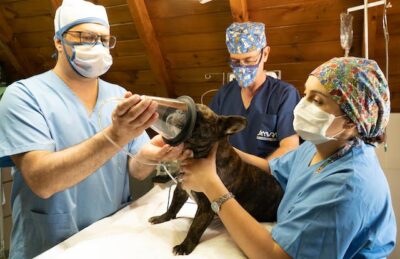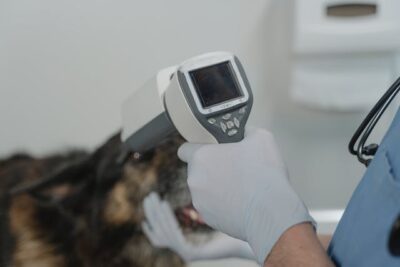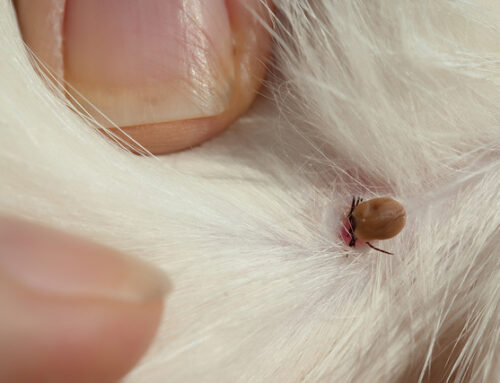Overview
- Introduction to Maltese Lifespan
- Understanding the Average Lifespan of Maltese Dog
- Life Stages of a Maltese Dog Breed
- Factors Affecting Maltese Lifespan
- How to Extend Your Maltese Lifespan
- Common Maltese Health Issues
- Signs of Aging in Maltese Dogs
- Coping with the Loss of a Maltese
- Conclusion to Maltese Lifespan
- Frequently Asked Questions (FAQs) about Maltese Lifespan
Introduction to Maltese Lifespan

Maltese dogs, with their elegant white coats and affectionate personalities, have long captured the hearts of dog lovers worldwide. As a toy breed, Maltese dogs are cherished for their small size and gentle nature, making them ideal companions for individuals and families alike.
One of the most intriguing aspects of the Maltese breed is their lifespan, which often raises questions and sparks curiosity among potential owners and enthusiasts.
In this comprehensive guide, we delve into the secrets of Maltese lifespan, exploring the factors that influence how long Maltese dogs live, from their early days as playful Maltese puppies to their golden years as beloved members of the family.
Whether you're a proud Maltese owner or considering welcoming one into your home, join us on a journey to uncover the mysteries of the Maltese dog breed's longevity.

A brief overview of the Maltese breed
The Maltese dog breed is renowned for its elegant appearance and charming personality.
These purebred dogs are known for their long lifespans, with both female Maltese dogs and male counterparts often living between 12 to 15 years on average, showcasing the remarkable Maltese lifespan.
Maltese puppies are adored for their playful nature and tiny size, making them perfect for apartment living and families of all sizes.
As a toy breed, the Maltese is prized for its affectionate temperament and adaptability, making them wonderful companions for all ages.

Importance of understanding lifespan for potential owners
Understanding the lifespan of a Maltese dog is crucial for potential owners to provide the best care throughout their pet's life.
From the playful antics of a Maltese puppy to the calm companionship of an adult Maltese, knowing the typical lifespan helps owners plan for their pet's needs, including healthcare, exercise, and nutrition, maximizing their Maltese lifespan.
It also fosters a deeper bond, allowing owners to cherish each moment with their furry friend and ensure a happy, fulfilling life for their Maltese dog.
Purpose of the article
The purpose of this article is to explore the lifespan of adult Maltese dogs, providing insights into their typical life expectancy and the factors that can influence how long they live.
By understanding the average lifespan of Maltese dogs, pet owners can better prepare for their care and make informed decisions about their health and well-being, ensuring a long and healthy Maltese lifespan.
This article aims to empower pet owners with knowledge that will help them ensure a long, happy life for their beloved Maltese companions.

Understanding the Average Lifespan of Maltese Dog
Factors That Influence Maltese Lifespan
Understanding the average lifespan of Maltese dogs involves considering various factors that can influence how long they live.
While Maltese puppies typically have a life expectancy of around 12 to 15 years, several elements can impact this figure.
Factors such as genetics, diet, exercise, and overall health play crucial roles in determining the average life expectancy of Maltese dogs. By recognizing these factors and taking proactive measures, owners can help ensure their Maltese companions live long, healthy lives.
Maltese Lifespan Compared With Other Small Dog Breeds And Large Dog Breeds
Understanding the average lifespan of Maltese dogs provides insights into their longevity compared to other dog breeds. Typically, Maltese dogs live between 12 to 15 years, a lifespan common among small and toy breeds.
This is notably longer than many large dog breeds, which often have shorter life expectancies. Despite their small size, Maltese dogs are generally healthy and can live long, fulfilling lives as cherished companions. When comparing to pure breeds like toy poodles and larger dogs, the Maltese's lifespan stands out as a testament to their resilience and well-being.

Life Stages of a Maltese Dog Breed
Puppyhood: 0-1 year
During the puppyhood stage of 0-1 year, Maltese puppies require extra care and attention from their pet parents. This is a crucial period for socialization, training, and establishing a bond with the Maltese dog breed.
Pet parents should focus on providing a safe environment, a balanced diet, regular veterinary check-ups, and plenty of love and affection to ensure the healthy development of their Maltese puppy.

Adolescence: 1-2 years old
During the adolescence stage, which typically occurs between 1-2 years of age, Maltese dogs begin to transition from puppies to young adults.
This period is characterized by increased energy levels, curiosity, and a continued need for training and socialization.
Providing mental and physical stimulation, along with consistent positive reinforcement training, is crucial during this developmental stage to help them mature into well-rounded adult dogs.
Owners should also focus on maintaining proper nutrition and regular exercise to support their growth and health.

Adulthood: 2-8 years old
During adulthood, which typically spans from 2-8 years old, Maltese dogs are in their prime.
They are generally more settled in their behavior compared to their younger years, exhibiting a stable energy level and a strong bond with their owners. This stage is characterized by their full physical development and maturity.
It's important to continue providing them with regular exercise, a balanced diet, and routine veterinary check-ups to maintain their health and well-being.
Owners should also focus on dental care, as dental issues can become more prevalent in adult dogs. With proper care, Maltese dogs can enjoy a healthy and active life throughout their adult years.

Senior Years: 8+ years old
In their senior years, typically starting at 8 years old, Maltese dogs are considered seniors and may begin to show signs of aging.
They may become less active and more prone to health issues such as arthritis, dental problems, and cognitive decline.
Despite these changes, many senior Maltese dogs remain loving and loyal companions. It's important to provide them with a comfortable and safe environment, as well as regular veterinary check-ups to monitor their health.
Adjustments to their diet and exercise routine may be necessary to accommodate their changing needs. With proper care and attention, Maltese dogs can enjoy a good quality of life well into their senior years.

Factors Affecting Maltese Lifespan
Genetics and breed history
Genetics and breed history play crucial roles in determining the lifespan of Maltese dogs.
As a pure breed, Maltese dogs have a relatively well-documented genetic background, which can help identify potential hereditary diseases and genetic health problems that may affect their life expectancy.
By understanding the breed's genetic predispositions, responsible breeders and owners can take proactive measures to minimize the risk of such issues and ensure the long-term health and well-being of Maltese dogs.

Diet and nutrition
Diet and nutrition are critical factors influencing the Maltese lifespan. A balanced and nutritious diet is essential for maintaining their health and well-being.
Maltese dogs should be fed high-quality food appropriate for their age, size, and activity level. Avoiding overfeeding and providing the right nutrients can help prevent obesity and related health issues, potentially extending their lifespan.
It's also important to provide fresh water at all times and consult with a veterinarian for personalized dietary recommendations to ensure a long and healthy life for Maltese dogs.

Exercise and physical activity
Exercise and physical activity play a crucial role in the Maltese lifespan. Regular exercise helps maintain their overall health and weight, which can impact their longevity.
Maltese dogs should be provided with daily walks and playtime to keep them active and engaged. However, it's important to avoid overexertion, especially in hot weather, as Maltese dogs are sensitive to heat.
Adequate exercise, tailored to their age and health status, can contribute to a longer and healthier life for Maltese dogs.

Healthcare and veterinary care
Healthcare and veterinary care are critical factors in determining the lifespan of Maltese dogs. Regular check-ups and proper care can help address potential health issues early, potentially extending their life expectancy.
Maltese dogs are prone to various health problems, including congenital diseases like patent ductus arteriosus, dental disease, heart failure, and luxating patella.
Proper care, including maintaining a healthy weight and addressing health issues promptly, is essential for ensuring Maltese dogs live long, healthy lives.
Environmental factors
Environmental factors can also play a role in the lifespan of Maltese dogs. Providing a safe and comfortable environment, free from hazards and extreme temperatures, can help promote their overall health and well-being.
Additionally, exposure to pollutants, toxins, and stressful situations can impact their longevity. Creating a peaceful and nurturing environment for Maltese dogs can contribute to a longer, healthier life.

How to Extend Your Maltese Lifespan
Proper nutrition and feeding practices
Proper nutrition and feeding practices are key to extending your Maltese's lifespan. Due to the breed's small size, it's important to feed them high-quality, nutritious food tailored to their needs. Avoid overfeeding, as smaller dogs like Maltese can easily gain weight, which can lead to health issues.
Consulting with your veterinarian about the best diet and feeding schedule for your Maltese can help ensure they maintain a healthy weight and live a long, happy life.
Regular exercise and mental stimulation
Regular exercise and mental stimulation are essential for extending your Maltese's lifespan. Daily walks, playtime, and interactive toys can help keep them physically and mentally fit. Mental stimulation, such as training exercises and puzzle toys, can also prevent boredom and behavioral issues.
Providing a stimulating environment and regular exercise can contribute to your Maltese's overall health and well-being, potentially extending their lifespan.

Preventive healthcare and vet check-ups
Preventive healthcare and regular vet check-ups are crucial for extending your Maltese's lifespan. Regular check-ups can help detect and address potential health issues early, potentially extending their life expectancy.
Maltese dogs are prone to certain health problems, including congenital diseases like liver shunts and heart failure, so regular veterinary care is essential for keeping them healthy. By staying proactive about your Maltese's health, you can help ensure they live a long, healthy life.
Providing a safe and comfortable environment
Providing a safe and comfortable environment is essential for extending your Maltese's lifespan. Ensure your home is free from hazards and toxins, and provide a comfortable bed and living space for your Maltese to rest and relax.
Keeping them safe from extreme temperatures and providing plenty of fresh water and a balanced diet will help maintain their health and well-being. By creating a peaceful and nurturing environment, you can help your Maltese live a longer, happier life.

Grooming and hygiene practices
To extend your Maltese's lifespan, regular grooming and hygiene practices are essential. Their silky white coat requires daily brushing to prevent matted hair and maintain its luxurious appearance.
Regular baths with a gentle shampoo can also help keep their coat clean and healthy, reducing shedding.
Additionally, trimming their nails, cleaning their ears, and brushing their teeth regularly can contribute to their overall health and well-being, potentially extending their lifespan.

Common Maltese Health Issues
Dental problems
Dental problems are common in the Maltese dog breed and can affect their overall health. Without proper dental care, Maltese dogs can develop issues such as plaque buildup, tartar, gum disease, and tooth decay.
It's important to maintain good dental hygiene for your Maltese, including regular teeth brushing and dental check-ups. Providing dental chews or toys can also help promote oral health and keep your dog healthy.
Skin allergies and sensitivities
Skin allergies and sensitivities are common issues in white Maltese dogs, known for their luxurious white coats. These dogs are prone to skin irritation, which can lead to itching, scratching, and discomfort.
It's essential to use gentle grooming products and maintain a regular grooming routine to keep their skin healthy. If your Maltese exhibits signs of skin allergies, such as redness or irritation, consult with your veterinarian for proper diagnosis and treatment.

Respiratory issues
Respiratory issues, including congenital diseases like Patent Ductus Arteriosus (PDA), can affect Maltese dogs. PDA is a congenital heart defect that affects blood flow and can lead to respiratory symptoms such as difficulty breathing, coughing, and fatigue.
Maltese owners need to be aware of these potential congenital disease issues and seek veterinary care if their dog shows signs of respiratory distress.
Early detection and proper management of congenital respiratory issues can help improve the quality of life for Maltese dogs affected by these conditions.
Luxating patella
Luxating patella is a common health issue in Maltese dogs, where the kneecap (patella) dislocates or moves out of its normal position. This condition can cause varying degrees of lameness and discomfort, ranging from mild to severe.
Regular veterinary check-ups can help monitor the condition and determine if any treatment, such as surgery or medication, is necessary to alleviate symptoms and improve your Maltese's quality of life.

Progressive Retinal Atrophy (PRA)
Progressive Retinal Atrophy (PRA) is a hereditary eye disorder that can affect the Maltese lifespan.
This condition causes the degeneration of the retina, leading to vision impairment and eventual blindness. PRA is typically diagnosed through a veterinary eye exam, including ophthalmoscopy and electroretinography.
While there is no cure for PRA, early detection can help manage the condition and slow its progression. Regular check-ups with a veterinarian are essential for monitoring the eye health of Maltese dogs and ensuring they maintain a good quality of life.

Signs of Aging in Maltese Dogs
Physical changes
Signs of aging in Maltese dogs can include graying or whitening of the coat, especially around the face and muzzle. They may also experience a decrease in energy levels, mobility issues such as stiffness or difficulty climbing stairs, and changes in appetite or weight.
Regular veterinary check-ups can help identify and address these physical changes to ensure the best possible quality of life for aging Maltese dogs.
Behavioral changes
As Maltese dogs age, they may exhibit behavioral changes such as increased sleepiness, disorientation, or changes in their interaction with their surroundings. They may also become more irritable or less tolerant of certain activities.
It's important for pet parents to be aware of these changes and provide extra comfort and support to their aging Maltese dogs. Regular veterinary check-ups can also help address any underlying health issues contributing to these behavioral changes.
Cognitive decline
Cognitive decline in aging Maltese dogs can manifest as confusion, forgetfulness, or disorientation. They may have difficulty recognizing familiar people or places and may exhibit changes in their sleep patterns.
Providing a consistent routine, mental stimulation, and patience can help manage cognitive decline in aging Maltese dogs.

Coping with the Loss of a Maltese
Grieving process
Coping with the loss of a Maltese dog can be a deeply emotional process. Pet parents may experience stages of grief, including denial, anger, bargaining, depression, and eventually acceptance.
Seeking support from friends, family, or pet loss support groups can help pet parents navigate this difficult time and find ways to honor the memory of their beloved Maltese.
Honoring your Maltese's memory
Honoring your Maltese's memory can be a comforting way to cope with their loss. Creating a memorial, such as a scrapbook or a garden dedicated to your Maltese, can provide a tangible way to remember and celebrate their life.
Sharing stories and memories with others who knew and loved your Maltese can also help keep their memory alive.
Conclusion to Maltese Lifespan
Recap of key points about Maltese lifespan
- Maltese dogs typically live between 12 to 15 years, which is longer than many large dog breeds.
- Factors such as genetics, diet, exercise, and overall health play crucial roles in determining the lifespan of Maltese dogs.
- Understanding the average lifespan of Maltese dogs helps pet owners plan for their care and make informed decisions about their health and well-being.
- Providing a safe and comfortable environment, regular veterinary care, proper nutrition, and exercise can help extend the lifespan of Maltese dogs.
Final thoughts Maltese Lifespan
Caring for a Maltese dog is a rewarding experience that requires dedication and commitment. From the playful puppyhood stage to the golden years of seniority, providing love, proper nutrition, regular exercise, and veterinary care is essential for ensuring a long, healthy life for your Maltese companion, maximizing their Maltese lifespan.
As your Maltese ages, be mindful of any changes in their behavior or health and address them promptly with your veterinarian. Cherish each moment with your Maltese and create lasting memories to honor their life. Your love and care are the keys to ensuring a happy and fulfilling life for your beloved Maltese dog.
Visit us our website for Maltese puppies for sale in Florida and surrounding areas. Our puppies are thoughtfully bred from reputable breeders, ensuring they are healthy, friendly, and well-loved. We guarantee that your new family member will meet your expectations and become a cherished member of your family.
Frequently Asked Questions (FAQs) about Maltese Lifespan
- Q: What is the average Maltese lifespan?
- A: Maltese dogs typically live between 12 to 15 years, though some can live even longer with proper care.
- Q: How can I ensure my Maltese lives a long and happy life?
- A: Providing a balanced diet, regular exercise, proper grooming, regular veterinary check-ups, and a safe environment are key to ensuring your Maltese lives a long and happy life.
- Q: Do Maltese dogs have any health issues that can affect their lifespan?
- A: Yes, Maltese dogs are prone to certain health issues such as liver shunts, dental problems, and luxating patella. Regular veterinary care and early intervention can help manage these issues and extend your Maltese's lifespan.
- Q: Do Maltese dogs have a tendency to lose weight as they age?
- A: Yes, some Maltese dogs may experience weight loss as they age. Monitoring their diet, ensuring they are getting enough nutrients, and consulting with your veterinarian can help address this issue.
- Q: Are there any special considerations for caring for a Maltese's luxurious white coat?
- A: Yes, regular grooming and bathing are important to maintain their white coat's appearance and health. Using a gentle shampoo and regular brushing can help keep their coat clean and free of tangles.
- Q: Can Maltese dogs live with other dogs or pets?
- A: Yes, Maltese dogs are generally friendly and can get along well with other dogs and pets, especially if they are properly socialized from a young age.
- Q: Do smaller breeds like Maltese live longer than larger dogs?
- A: Yes, smaller breeds like Maltese tend to live longer than larger dogs. Their smaller size often contributes to a longer lifespan compared to larger breeds.
- Q: Are Maltese dogs good pets for older children?
- A: Yes, Maltese dogs can be good pets for older children who understand how to properly interact with dogs. Their small size and playful personalities make them suitable companions for older children.
- Q: How can I help my Maltese live longer?
- A: Providing a healthy diet, regular exercise, mental stimulation, and lots of love and attention can help extend your Maltese's lifespan. Regular veterinary check-ups are also important for monitoring their health and addressing any issues early.




